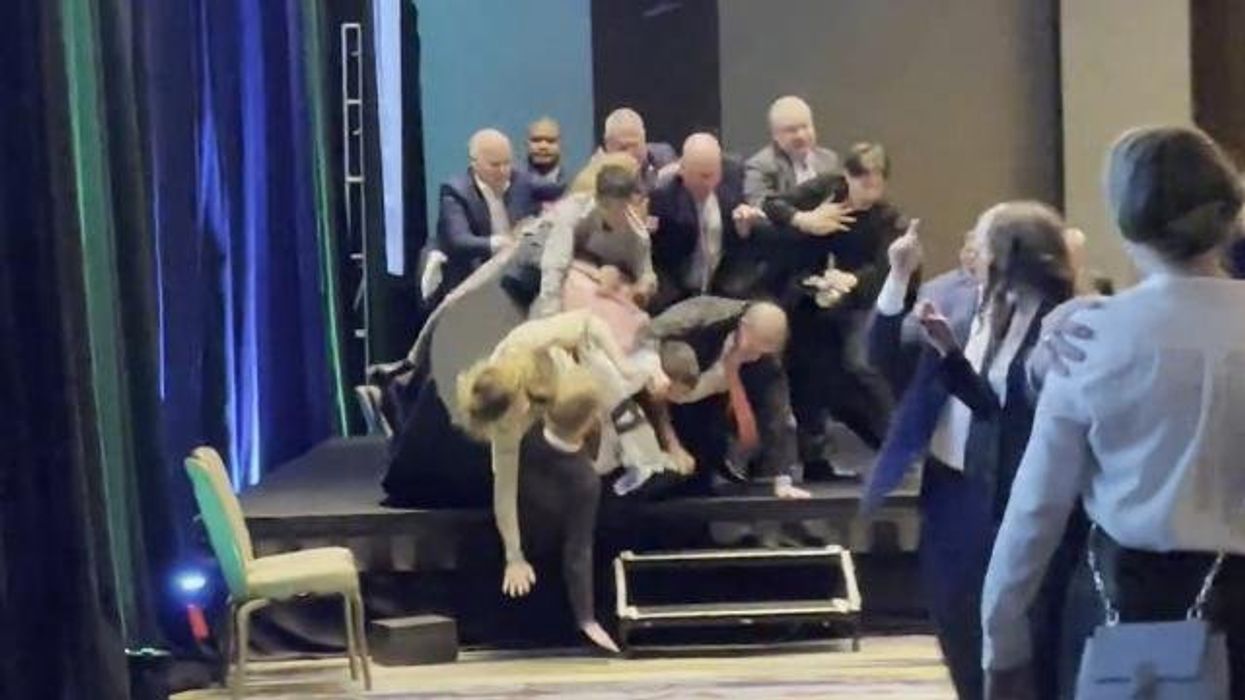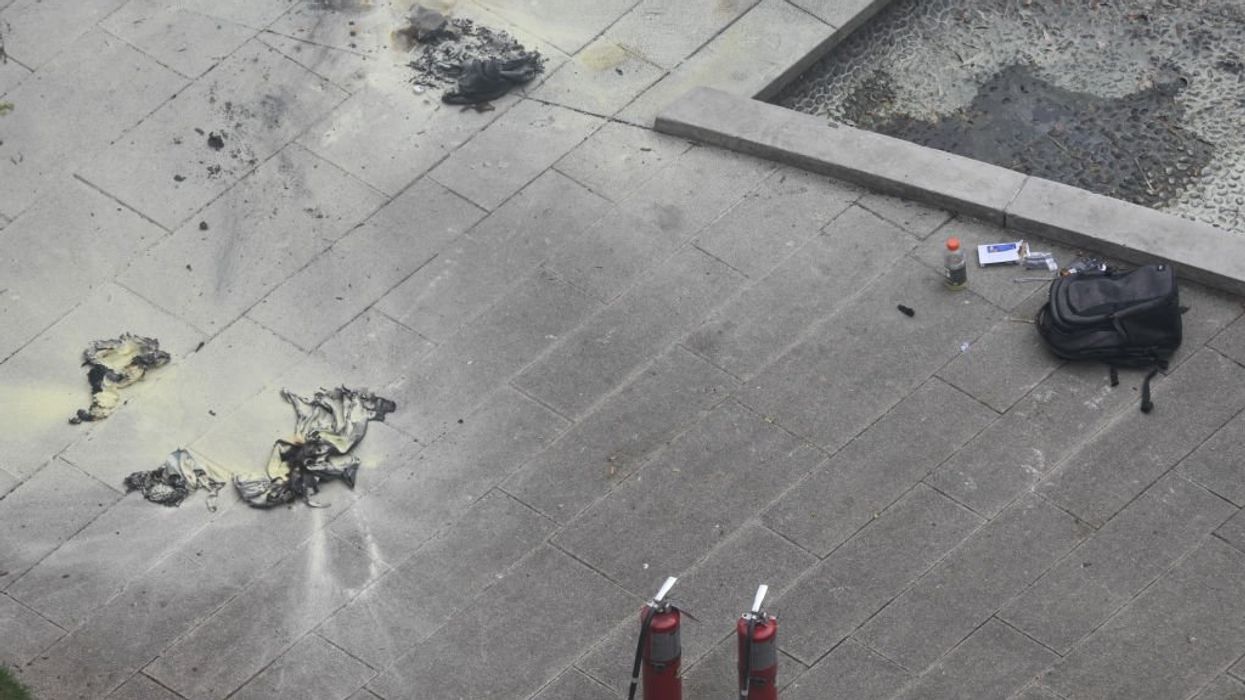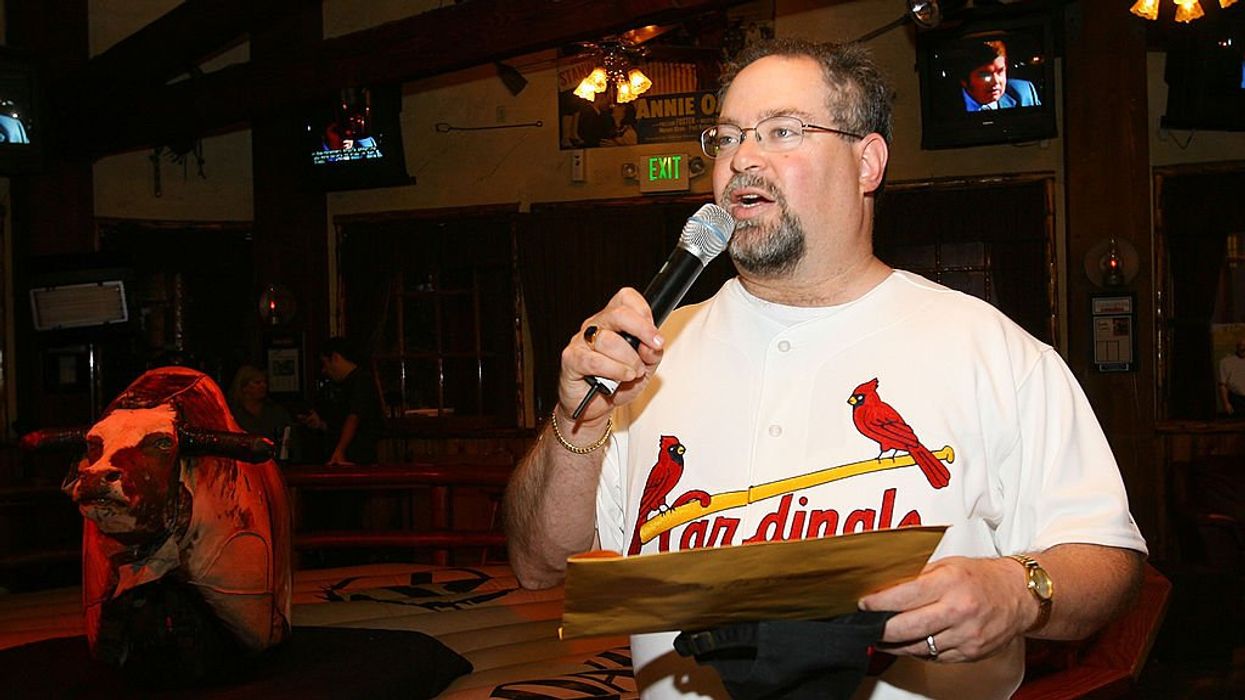Any police officer who shoots to kill is playing with fire.
In that split second of deciding whether to shoot and where to aim, that officer has appointed himself judge, jury and executioner over a fellow citizen. And when an officer fires a killing shot at a fellow citizen not once or twice but three and four and five times, he is no longer a guardian of the people but is acting as a paid assassin. In so doing, he has short-circuited a legal system that was long ago established to protect against such abuses by government agents.
These are hard words, I know, but hard times call for straight talking.
We’ve been dancing around the issue of police shootings for too long now, but we’re about to crash headlong into some harsh realities if we don’t do something to ward off disaster.
You’d better get ready.
 (Photo by Andrew Renneisen/Getty Images)
(Photo by Andrew Renneisen/Getty Images)
It’s easy to get outraged when police wrongfully shoot children, old people and unarmed citizens watering their lawns ortending to autistic patients. It’s harder to rouse the public’s ire when the people getting shot and killed by police are suspected of criminal activities or armed with guns and knives. Yet both scenarios should be equally reprehensible to anyone who values human life, due process and the rule of law.
For instance, Paul O’Neal was shot in the back and killed by police as he fled after allegedly sideswiping a police car during a chase. The 18-year-old was suspected of stealing a car.
Korryn Gaines was shot and killed—and her 5-year-old son was shot—by police after Gaines resisted arrest for a traffic warrant and allegedly threatened to shoot police. Police first shot at Gaines and then opened fire when she reportedly shot back at them.
Loreal Tsingine was shot and killed by a police officer after she approached him holding a small pair of medical scissors. The 27-year-old Native American woman was suspected of shoplifting.
None of these individuals will ever have the chance to stand trial, be found guilty or serve a sentence for their alleged crimes because a police officer—in a split second—had already tried them, found them guilty and sentenced them to death.
In every one of these scenarios, police could have resorted to less lethal tactics.
They could have attempted to de-escalate and defuse the situation.
They could have acted with reason and calculation instead of reacting with a killer instinct.
That police instead chose to fatally resolve these encounters by using their guns on fellow citizens speaks volumes about what is wrong with policing in America today, where police officers are being dressed in the trappings of war, drilled in the deadly art of combat, and trained to look upon “every individual they interact with as an armed threat and every situation as a deadly force encounter in the making.”
We’re approaching a breaking point.
This policing crisis is far more immediate and concerning than the government’s so-called war on terror or drugs.
So why isn’t more being done to address it?
As I make clear in my book "Battlefield America: The War on the American People," there’s too much money at stake, for one, and too much power.
Those responsible for this policing crisis are none other than the police unions that are helping police officers evade accountability for wrongdoing; the police academies that are teaching police officers that their lives are more valuable than the lives of those they serve; a corporate military sector that is making a killing by selling military-grade weapons, equipment, technology and tactical training to domestic police agencies; a political establishment that is dependent on campaign support and funding from the powerful police unions; and a police state that is transforming police officers into extensions of the military in order to extend its reach and power.
This is no longer a debate over good cops and bad cops.
It’s a tug-of-war between the constitutional republic America’s founders intended and the police state we are fast becoming.
So where do we go from here?
For starters, stop with the scare tactics. In much the same way that American citizens are being cocooned in a climate of fear by a government that knows exactly which buttons to push in order to gain the public’s cooperation and compliance, police officers are also being indoctrinated with the psychology of fear. Despite the propaganda being peddled by the government and police unions, police today experience less on-the-job fatalities than they ever have historically.
Second, level the playing field. Police are no more or less special than you or me. Their lives are no more valuable than any other citizen’s. While police are entitled to every protection afforded under the law, the same as any other citizen, they should not be afforded any special privileges. Most Americans, oblivious about their own rights, aren’t even aware that police officers have their own Law Enforcement Officers’ Bill of Rights, which grants them special due process rights and privileges not afforded to the average citizen.
Third, require that police officers be trained in non-lethal tactics. According to the New York Times, a survey of 281 police agencies found that the average young officer received 58 hours of firearms training and 49 hours of defensive tactical training, but only eight hours of de-escalation training. If police officers are taking classes in how to shoot, maim and kill, shouldn’t they also be required to take part in annual seminars teaching de-escalation techniques and educating them about how to respect their fellow citizens’ constitutional rights, especially under the First and Fourth Amendments?
Fourth, ditch the quasi-military obsession. Police forces were never intended to be standing armies. Yet with police agencies dressing like the military in camouflage and armor, training with the military, using military weapons, riding around in armored vehicles, recruiting military veterans, and even boasting military titles, one would be hard pressed to distinguish between the two. Still, it’s our job to make sure that we can distinguish between the two, and that means keeping the police in their place as civilians—non-military citizens—who are entrusted with protecting our rights.
Fifth,demilitarize. There are many examples of countries where police are not armed and dangerous, and they are no worse off for it. Indeed, their crime rates are low and their police officers are trained to view every citizen as precious. For all of the talk among politicians about gun violence and the need to enact legislation to make it more difficult for Americans to acquire weapons, little is being done to demilitarize and de-weaponize police.
Sixth, stop making taxpayers pay for police abuses. Some communities are trying to require police to carry their own professional liability insurance. The logic is that if police had to pay out of pocket for their own wrongdoing, they might be more cautious and less inclined to shoot first and ask questions later.
Seventh, stop relying on technology to fix what’s wrong with the country. The body cameras haven’t stopped the police shootings, and they won’t as long the cameras can be turned on and off at will while the footage remains inaccessible to the public.
Eighth, stop being busybodies and snitches. Overcriminalization has partially fueled the drive to “police” everything from kids walking to the playground alone and backyard chicken coops to front yard vegetable gardens. But let’s start taking some responsibility for our own communities and stop turning every minor incident into a reason to call the police.
Finally, support due process for everyone, not just the people in your circle. Remember that you no longer have to be poor, black or guilty to be treated like a criminal in America. All that is required is that you belong to the suspect class—a.k.a. the citizenry—of the American police state. As a de facto member of this so-called criminal class, every U.S. citizen is now guilty until proven innocent.
Unfortunately, Americans have been so propagandized, politicized and polarized that many feel compelled to choose sides between defending the police at all costs or painting them as dangerously out-of-control.
Nothing is ever that black and white, but there are a few things that we can be sure of: America is not a battlefield. American citizens are not enemy combatants. And police officers—no matter how courageous—are not soldiers.
Therein lies the problem: we’ve allowed the government to create an alternate reality in which freedom is secondary to security, and the rights of the citizenry are less important than the authority of the government. This way lies madness.
The longer we wait to burst the bubble on this false chimera, the harder it will be to return to a time when police were public servants and freedom actually meant something, and the greater the risks to both police officers and the rest of the citizenry.
Something must be done and soon.
The police state wants the us vs. them dichotomy. It wants us to turn each other in, distrust each other and be at each other’s throats, while it continues amassing power. It wants police officers who act like the military, and citizens who cower in fear. It wants a suspect society. It wants us to play by its rules instead of holding it accountable to the rule of law.
The best way to beat the police state: don’t play by their rules.
Make them play by ours instead.
–
TheBlaze contributor channel supports an open discourse on a range of views. The opinions expressed in this channel are solely those of each individual author.

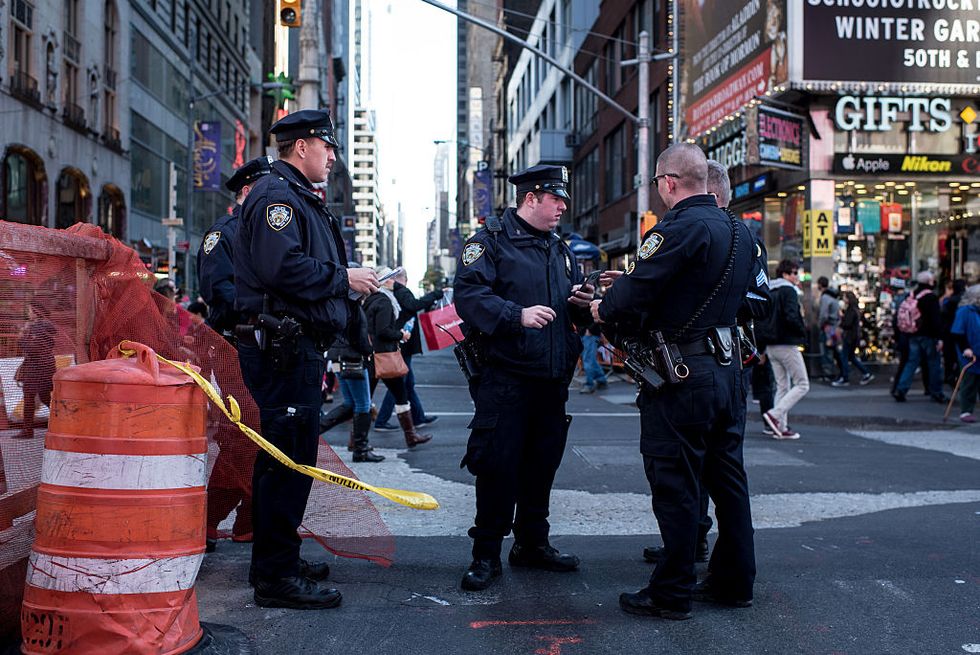
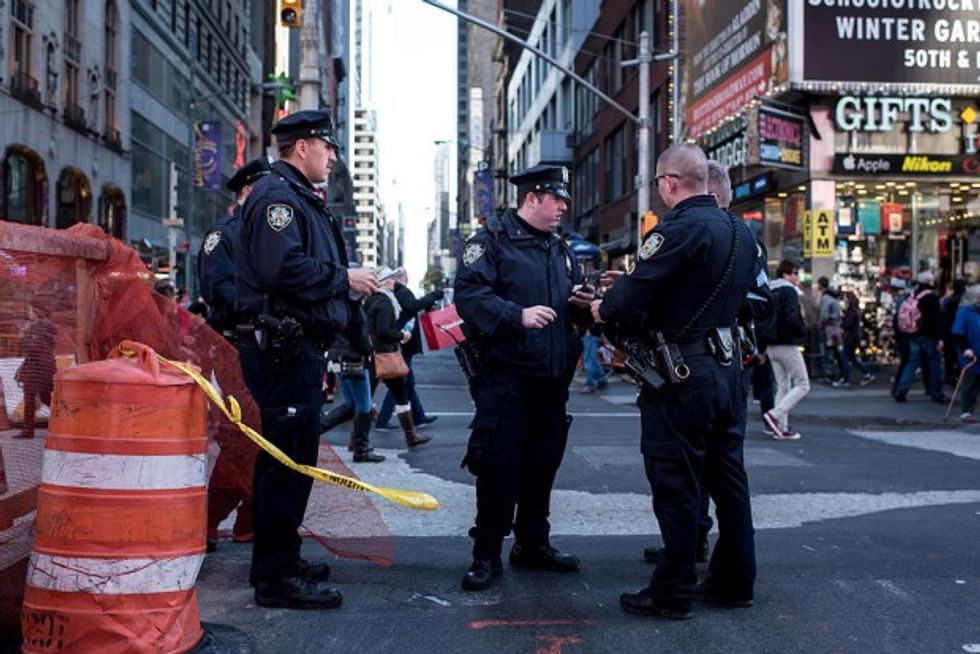 (Photo by Andrew Renneisen/Getty Images)
(Photo by Andrew Renneisen/Getty Images)
